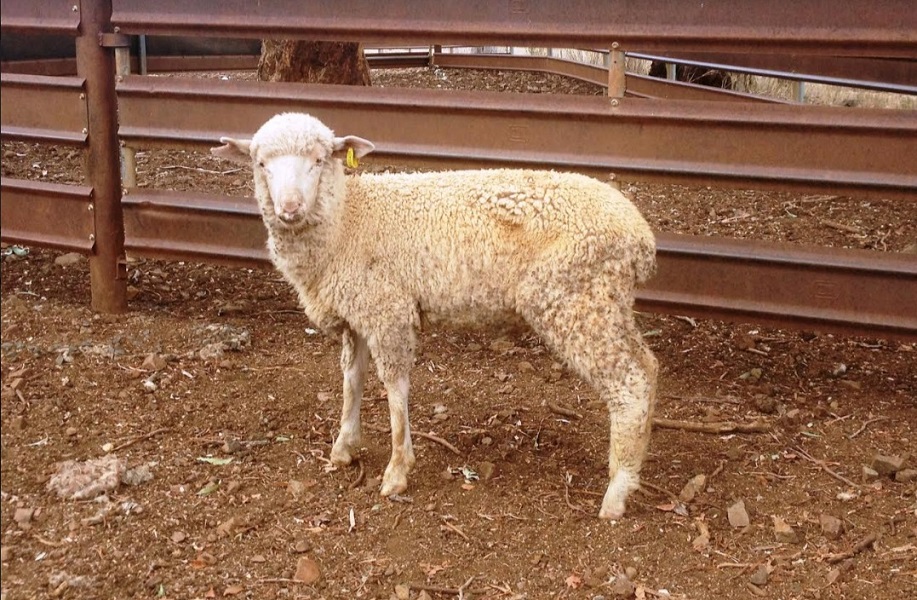
A Merino weaner suffering from ill-thrift. Image – LLS.
INCREASED health issues and deaths in sheep in New South Wale’s northern tablelands region has prompted a call for farmers to investigate ill-thrift early and take action before problems spread.
Local Land Services said the reports of a spike in health issues mainly relate to weaner sheep after a tough couple of years for livestock due to drought and hand feeding challenges.
Livestock in the region also had a tough start last spring, and though things improved through the summer, they are now struggling with long rank feed, worms and grass seeds, but weaners are doing it the toughest, LLS said.
LLS district veterinarian at Inverell, Andrew Biddle, said a wide range of factors are behind the spate of ill health and increased mortalities.
These include problems with:
Nutrition: Sheep battling through long grass or overgrazing small areas of short feed in large paddocks, may not be able to access adequate nutrients to maintain good health.
Worms: Rain and warm weather over summer provided ideal conditions for Barbers Pole Worm. Pasture contamination has increased and clinically affected sheep are on the increase. Those sheep in paddocks with long feed sitting on the short grass are most at risk. A mild wet autumn could see Barber’s Pole Worm remain a threat for another couple of months. The best way to determine the extent of your worm threat is to do worm egg counts Although we are seeing some problems with immature worms, where weaners are adversely affected before the worms are mature enough to produce eggs in the faeces.
Liver Fluke: Technically also a worm. If you are in a fluke affected area or have purchased weaners from an affected area, get a worm test done and drench sheep if necessary.
Mycoplasma ovis: This is a blood parasite of sheep that causes anaemia and the symptoms can be very like Barbers Pole Worm. The sheep’s immune system will normally fight off the infection, but stressed weaners can be severely affected.
Pink eye-induced blindness: Pink eye in sheep is usually caused by Chlamydia and is different to pink eye disease in cattle. Sheep normally recover without treatment, while yarding animals for treatment can increase disease spread. Blind weaners will usually move with their mob and cope well. However, it may be economic to treat valuable animals with antibiotic eye ointment.
Dr Biddle said cases of pneumonia, scouring and breech strike are also still showing up in sheep. He said good management strategies can reduce the impact of disease and other health problems and the financial benefits are worth the effort.
“Producers should aim to keep weaner weights up around 23kgs.
“Lighter lambs will have lower muscle and fat reserves going into winter and are more likely to struggle to fight off common health problems,” he said.
“Lighter weaners need supplementation with a high protein product.
“A paddock containing high quality pasture, that has been spelled and has a low worm burden, will give weaners the best opportunity to thrive going into winter,” he said.
Worm monitoring is critical
Dr Biddle believes monitoring for worms is also critical for good management.
“Whether it be Barber’s Pole or Black Scour Worm, ongoing monitoring of sheep will give you an insight into potential threats before they become a crisis.”
Importantly, he advised producers to investigate health problems early and take action before large numbers of the flock are affected.
“Your Local Land Services District veterinarian can help and we are always happy to advise on queries from local landholders.”
For more information on sheep health contact your nearest Local Land Services office in Armidale, Inverell, Glen Innes or Tenterfield.

HAVE YOUR SAY